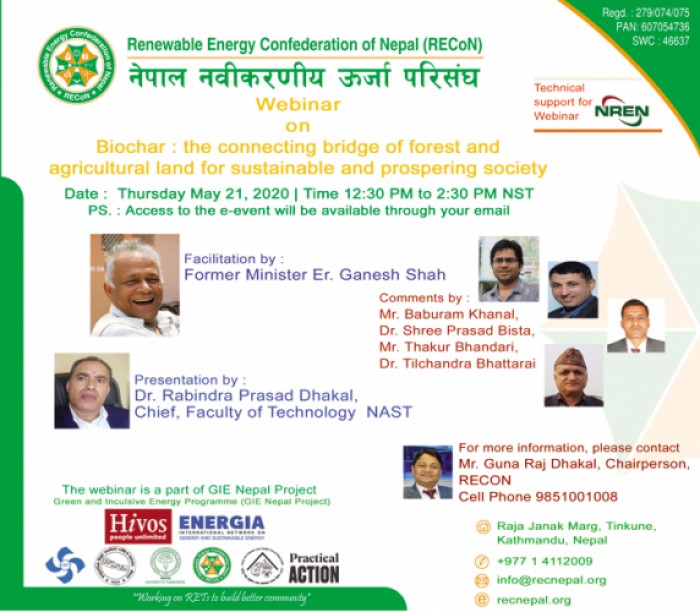
Biochar may increase soil fertility of acidic soils (low pH soils), increase agricultural productivity, and provide protection against some foliar and soil-borne diseases. Regarding its definition in production, biochar is defined by the International Biochar Initiative as "The solid material obtained from the thermochemical conversion of biomass in an oxygen-limited environment".
Keeping in view a number of advantages, biochar needs to be available, accessible and affordable to agriculture sector realizing its role in enhancing soil quality, crop quality and environment. Biochar is also known as a compliment to the organic fertilizer as well.
Dr. Dhakal mentioned what biochar actually is, its uses and benefits. He also highlighted some of the important research going on in NAST about biochar and his ongoing and completed research experience. It was surprising to know through him that Nepal falls far behind to complete the target of 2% soil organic matter in 2020 according to ADS (Agricultural Development Strategy) 2015-2035. In his working experience in several villages of Nepal, it was breathtaking to see how the soil status and productivity has risen up in a small time interval using biochar.
The webinar organised by RECON on biochar is a part of GIE Nepal Project aiming benefits to women, underprivileged communities, disable and poor people through access to renewable energy technologies.
Title |
Attachment |
|
| Biochar: the connecting bridge of forest and agricultural land for sustainable and prospering society | Download | Dr. Rabindra Prasad Dhakal |




